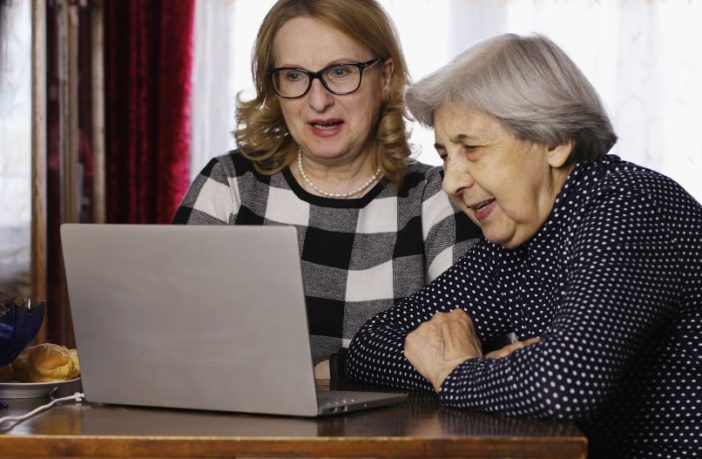Shailey Minocha, Professor of Learning Technologies and Social Computing at The Open University, writes about how the use of technology and coping strategies can combat social isolation in people over 70.
The world has changed since coronavirus (COVID-19) surfaced. Although the situation may be temporary, we realise that things will be different from now on. There is a sense of collective unease at different levels – loss of normalcy, loss of control, economic toll, loss of connection, and uncertainty about the future. However, it’s important for us to move forward and get some control back in our lives while acknowledging our fears.
In this article, I outline some coping strategies for older people to combat social isolation, especially people over 70 years old, who have been asked to stay at home for 12 weeks to protect them from COVID-19.
The five coping strategies, based on the evidence from my research with people over 55 years old, are around the five actions to improve mental wellbeing by the New Economics Foundation (NEF): connect, be active, take notice, keep learning and give.
Keep in touch
Video-conferencing tools such as Skype and FaceTime help to connect but even phone-calls and text messages can help to keep in touch with family, friends and neighbours. Having a FaceTime tea or Skype supper with a set of friends or family members – seeing and talking to others while having tea or supper could help you to feel connected. To set up a routine, you may like to arrange times for calls with family and friends and speak to different people every day to have some variety.
Stay active
It’s important to maintain some level of physical activity, depending upon individual condition, through activities such as gardening, walking for a few minutes in every hour, following Pilates and yoga videos on YouTube. Although walking with others or working out in a group is more fulfilling than doing it on your own, our research has shown that physical activity of any kind can boost self-esteem, mood, sleep quality and energy, as well as reduce the risk of stress and depression.
Exercise company Move It or Lose It, who caters to older adults, is offering live workout sessions on its Facebook page. This company has also created a support pack for older people providing guidance on how they can keep exercising at home. Also, fitness coach Joe Wicks has a YouTube video: 10 Minute Home Chair Workout For Seniors, making it easy for people to work out from the comfort of their own home.
Keep an online photo diary
Blipfoto is a photo-journaling site where users post a photo a day – a photo that has been taken on that day. This social media site is based on the principle of ‘be excellent to each other’. My research has shown that older people and carers find tremendous support and build friendships through posting a photo a day on this site. These are two examples of journals on this site: self-isolating couple and a wife-carer. Taking a photo even with a mobile phone and sharing it on blipfoto or Facebook and writing something about your day may help to connect with others in a similar situation. Looking at photos might be reassuring for the rest of the family too. This post on blipfoto gives several ideas on taking photos when you are following the social distancing and self-isolation instructions.
Learn something new
If you’re interested in learning new topics, there are several free online resources to keep you occupied. For example, The Open University offers a number of free courses on OpenLearn and the FutureLearn platform. You can work through these courses in your own time and some of the courses on FutureLearn have a community via online forums, which may help in connecting with others to learn from one another.
Volunteer
Even if you’re self-isolating at home, you may still be able to volunteer, such as co-ordinating requests from people who need help and co-ordinating the volunteers in your local area on Facebook or Nextdoor during this current crisis. Several neighbourhoods all over the UK have set up Facebook groups to co-ordinate support for elderly and vulnerable people. My research has shown that volunteering helps in alleviating social isolation in older people as it gives them a sense of fulfilment by supporting others in the community.
The proposed strategies above are based on the assumption that people have access to the internet and that they are comfortable with using technology. I realise that not everybody may have an internet connection or may be skilled or confident to use the technology, but I hope that people may be able to adopt the basic principles of connecting, keeping active, taking notice, learning and giving in whatever form they can to cope in the current situation. In fact, in the current crisis, we need to take more care of neighbours, family members and friends who are not online as they are at a greater risk of social isolation. Age UK has outlined some tips for older people to stay safe and healthy during the pandemic.
Although the above coping strategies are aimed at older people, these could be useful to people of all ages who are self-isolating due to the lockdown in the UK.



